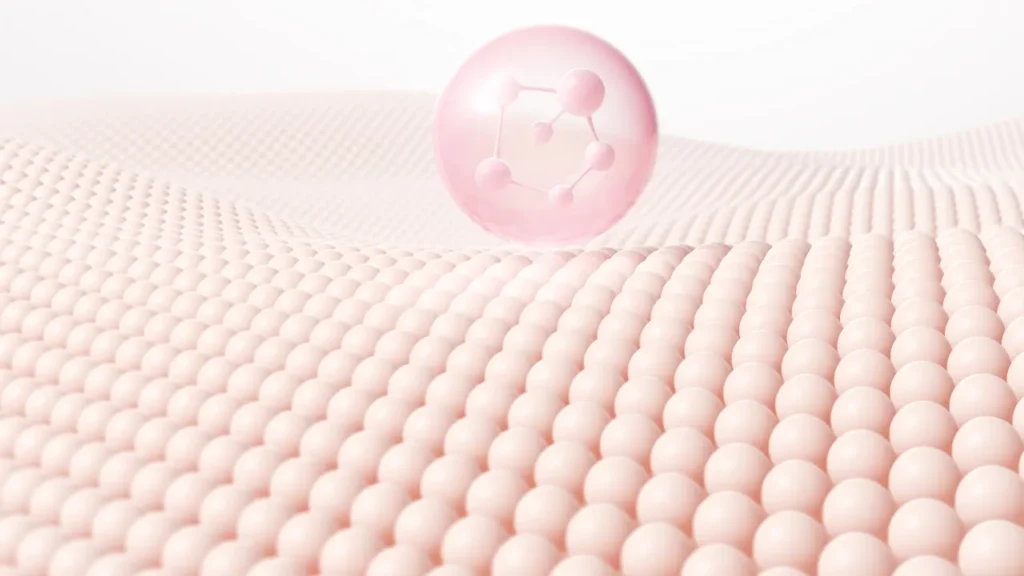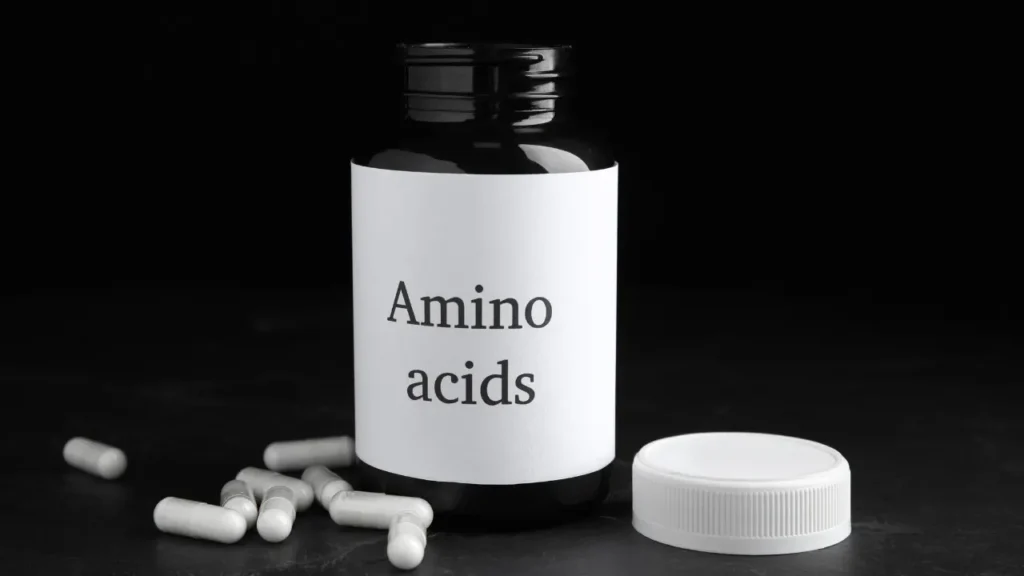Bio Cell Collagen is a dietary supplement made from the skin, bones, and connective tissues of animals like cows, chickens, and fish. Collagen, a protein that makes up a sizable component of our skin, bones, and connective tissues, is presently abundant in this dietary supplement. Collagen plays a key role in many physiological processes in the body and is essential for preserving the structural integrity of these tissues.
You May Also Like:
5 Great Nootropic Herbs for Energy, Focus, and Productivity
Boneset: Benefits, Dosage, Side Effects, Drug Interactions, and Other Important Information
Bio Cell Collagen: Benefits, Dosage, Side Effects, Drug Interactions, And Other Important Information is an original (NootropicsPlanet) article.
Nature of Bio Cell Collagen
Bio Cell Collagen is a form of hydrolyzed collagen that has had its collagen molecules divided into smaller peptides. As a result, the body can absorb and use the collagen more readily. Typically, bio cell collagen is offered as a powder that can be mixed into meals or beverages. Additionally, capsules of it are also available.
Health Benefits of Bio Cell Collagen
Numerous physiological functions of the body, including the health of the skin, bones, joints, and gut, depend on collagen. Our bodies create less collagen as we get older, which can result in wrinkles, joint pain, and a loss of bone density. The body’s collagen reserves may be replenished and these health issues can be improved by taking supplements like bio cell collagen.
Skin Health: Collagen, which makes up around 75% of the dry weight of our skin, is a crucial element. It gives the skin structure and support, assisting in preserving its suppleness and firmness. Our bodies create less collagen as we get older, which can result in wrinkles, sagging skin, and less hydrated skin. By replenishing the body’s collagen reserves, bio cell collagen supplements can improve skin health and minimize the appearance of fine lines and wrinkles.
Bone Health: Collagen plays a critical role in the strength and form of our bones. Our bodies manufacture less collagen as we get older, which can result in a loss of bone mass and a higher risk of osteoporosis. According to research, postmenopausal women who take bio cell collagen supplements have higher bone density and better bone health.
Joint Health: Collagen is an important element of our connective tissues, especially our joints. It gives the joints structure and support, assisting in preserving their suppleness and movement. Our bodies manufacture less collagen as we get older, which can cause joint pain and reduced joint mobility. By replenishing the body’s collagen reserves, using supplements like bio cell collagen can enhance joint health and lessen joint pain.

Chemistry of Bio Cell Collagen
Collagen is a protein comprised of repeated amino acid units. Glycine, proline, and hydroxyproline are the amino acids that are most prevalent in collagen. In order to create one molecule of collagen, three chains of amino acids are coiled together to form a triple-helix structure. Collagen’s durability and stability are a result of its distinctive structure.
By dissolving the collagen molecules into smaller peptides through a procedure known as hydrolysis, hydrolyzed collagen, such as bio cell collagen, is produced. The body can then absorb the collagen and use the amino acids that are separated from the hydrolyzed collagen after it has been consumed to support the synthesis of new collagen and other proteins.
Physiological Properties of Bio Cell Collagen
Collagen functions as a source of amino acids that make up its component, and it is related to the physiological properties of bio cell collagen. The skin, bones, and connective tissues are only a few of the tissues in the body that require collagen, as was previously stated. By replenishing the body’s collagen reserves, taking supplements like bio cell collagen can assist to improve the health of these tissues.
For instance, greater collagen availability in the skin can assist to preserve skin firmness and elasticity, minimizing the visibility of fine lines and wrinkles. Increased collagen availability in the bones may contribute to better bone health and density. The enhanced availability of collagen in the joints can support maintaining joint mobility and lowering joint pain. Increased collagen availability in the gut may aid in preserving the integrity of the gut lining and lowering the risk of leaky gut syndrome and other gut-related illnesses.

Optimal Dosage of Bio Cell Collagen
Depending on your health situation and the particular health issue being treated, different bio cell collagen dosages are recommended. However, a typical daily dosage of bio cell collagen is between 10 and 15 gm. Before beginning a new supplement regimen, it is crucial to consult a healthcare professional and follow the manufacturer’s recommended dosage guidelines.
Side Effects of Bio Cell Collagen
In general, bio cell collagen is regarded as secure and safe. But some people could experience minor side effects like gas, bloating, and digestive discomfort. Usually transient, these side effects can be controlled by lowering the dosage or taking the supplement with food.
Rarely, some people might develop an allergy to bio cell collagen, particularly if they have a sensitivity to the animal source from which it is derived. Itching, hives, and breathing issues are all signs of an allergic reaction. Stop using bio cell collagen and get help right away if you encounter these effects.

Potential Substance Interactions with Bio Cell Collagen
There is no evidence that bio cell coallgen interacts with any drugs or other substances. But before beginning a new supplement regimen, as with any supplement, it is crucial to speak with a healthcare professional, especially if you are taking any medications or have any underlying medical conditions.
Best Responsible Use of Bio Cell Collagen
The best way to use bio cell collagen responsibly is to abide by the manufacturer’s dose recommendations and consult a doctor before beginning any new supplement program. It’s crucial to realize that while bio cell collagen may have great health advantages, a balanced diet and active lifestyle should always come first. The best method to make sure that the body is getting all of the nutrients it needs for optimum health is to eat a balanced diet that features a range of fruits, vegetables, whole grains, and lean protein sources.
In addition, it’s critical to get a high-quality bio cell collagensupplement from a recognized supplier. Choose a supplement that has undergone independent testing for efficacy and purity, and that has no dangerous fillers or additions.
Last but not least, it’s critical to be aware of any potential side effects or drug interactions and to get medical help if any unfavorable reactions happen. It is crucial to use bio cell collagen responsibly and in cooperation with a healthcare professional. It can be a safe and effective way to support general health.
Bio Cell Collagen:
Conclusion
Collagen is crucial for maintaining intestinal health. By preserving the integrity of the gut lining, it lowers the risk of leaky gut syndrome and other problems relating to the health of the gut. The risk of gut-related illnesses can be decreased and gut health can be improved by taking supplements with bio cell collagen. In conclusion, bio cell collagen functions by giving the body a supply of collagen and the amino acids that make up that collagen, so that the body may use those nutrients to assist the synthesis of new collagen and other proteins. This can enhance your overall general health by enhancing the condition of the intestines, skin, bones, and joints.

References:
- “Collagen: What It Is, Benefits, and Uses.” Medical News Today. Retrieved From: https://www.medicalnewstoday.com/articles/262881
- “Collagen Peptides: Health Benefits, Dosage, and More.” WebMD. Retrieved From: https://www.webmd.com/vitamins/ai/ingredientmono-1606/collagen-peptides
Important Note: The information contained in this article is for general informational purposes only, and should not be construed as health or medical advice, nor is it intended to diagnose, prevent, treat, or cure any disease or health condition. Before embarking on any diet, fitness regimen, or program of nutritional supplementation, it is advisable to consult your healthcare professional in order to determine its safety and probable efficacy in terms of your individual state of health.
Regarding Nutritional Supplements Or Other Non-Prescription Health Products: If any nutritional supplements or other non-prescription health products are mentioned in the foregoing article, any claims or statements made about them have not been evaluated by the U.S. Food and Drug Administration, and such nutritional supplements or other health products are not intended to diagnose, treat, cure, or prevent any disease.


